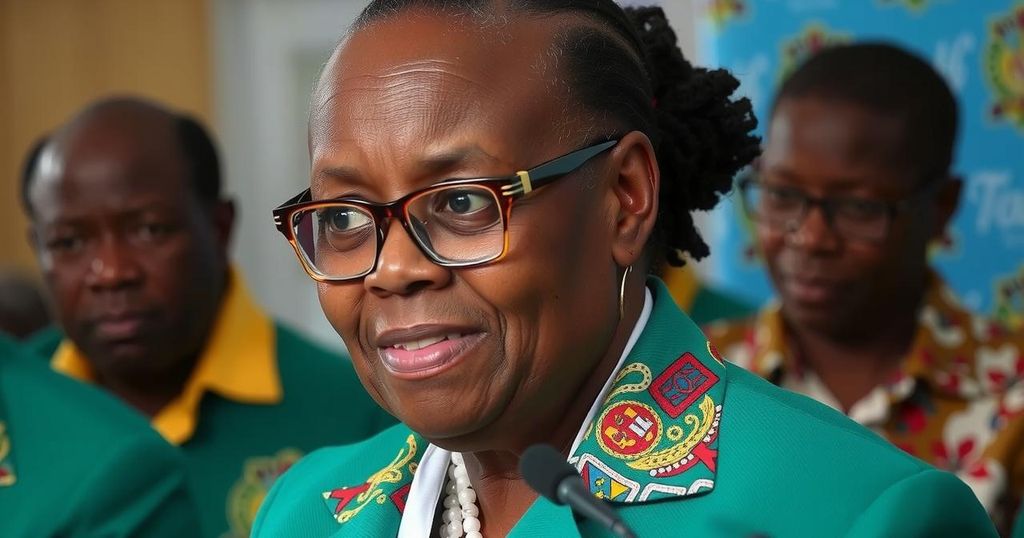Tension Grows in Mozambique Ahead of Court Ruling on Election Dispute

In Mozambique’s capital, Maputo, tension mounts as residents await a court ruling on the disputed presidential election results from October. Venâncio Mondlane, the main opposition figure, claims the election was rigged, leading to persistent protests and violence. The atmosphere is characterized by roadblocks and reduced activity in the city as both local and international scrutiny of the electoral process continues.
The atmosphere in Maputo, the capital of Mozambique, remains tense as citizens await a court decision regarding the disputed results of the October presidential elections. The elections, which proclaimed the ruling party Frelimo’s candidate Daniel Chapo as the winner with 71% of the vote, have been called into question by Venâncio Mondlane, the runner-up who asserts that the election was rigged. Suffering threats and violence, including the tragic deaths of two aides, Mondlane now resides in exile, urging his supporters to continue demonstrating.
In light of escalating tensions, Maputo’s vibrant streets are eerily quiet, reflecting the impact of protests that erupted on October 21. Preparations for further demonstrations appear underway, with some protesters already blocking major roads to vehicular traffic. The Mozambican Constitutional Court is scheduled to announce its ruling at 15:00 local time, a moment that could greatly influence the country’s stability.
Mondlane, who received 20% of the vote as an independent candidate, has declared that he cannot accept the results, while officials from the electoral commission refute allegations of impropriety. Despite the commission’s claims, international observers have pointed to significant flaws within the election processes, sparking additional unrest. Recent protests have resulted in violent confrontations with law enforcement, leading to the deaths of over 110 individuals, according to local reports. Officials assert self-defense, yet allegations persist regarding excessive use of force by security personnel. Furthermore, Pope Francis has issued a call for dialogue within the predominantly Catholic nation as tensions mount. Discussions between Mondlane and outgoing President Filipe Nyusi have taken place, although their outcomes remain unknown.
Mozambique has a history marked by political instability, particularly concerning its electoral processes. The recent presidential election held in October 2023 has intensified these issues as the ruling party, Frelimo, which has dominated the political scene for nearly five decades, faces allegations of electoral fraud. The tension surrounding the election results has incited widespread protests and violence, leading to a climate of fear and unrest within the capital and across the nation. The presence of international election observers has highlighted significant irregularities in the voting and counting processes, further complicating the political landscape. The call for dialogue by religious leaders, including Pope Francis, reflects a yearning for peace and resolution amidst a tumultuous period in Mozambique’s governance.
In summary, the situation in Mozambique remains fraught with tension as the nation waits for a court ruling on the disputed presidential election results. The political climate is marked by ongoing protests and allegations of electoral fraud, leading to violent clashes and a considerable loss of life. With both national and international scrutiny surrounding the administration’s conduct, the coming days are pivotal for the future of Mozambique’s democracy and public safety. Dialogue between political leaders and the public remains essential to quell unrest and promote reconciliation.
Original Source: www.bbc.com







